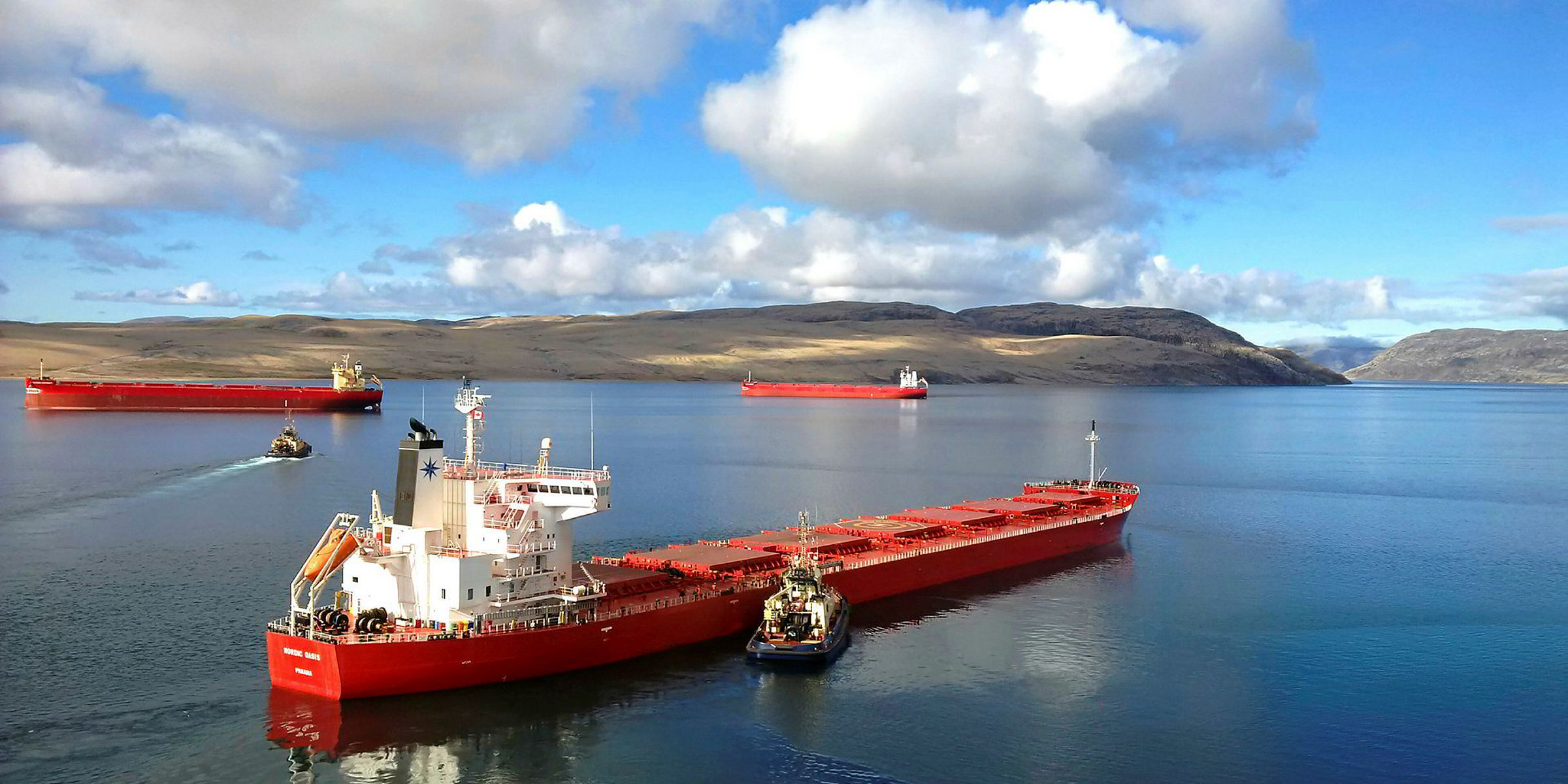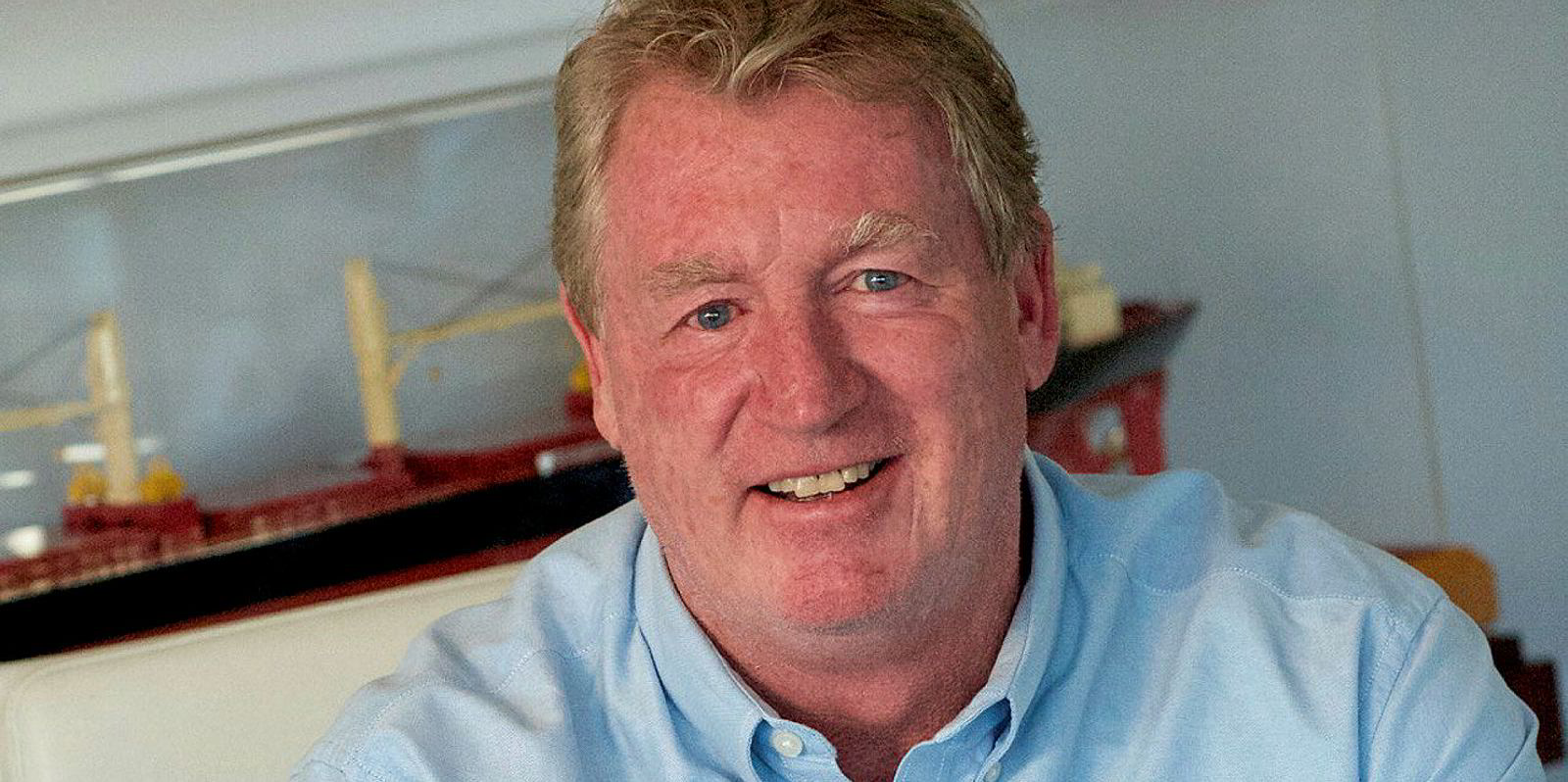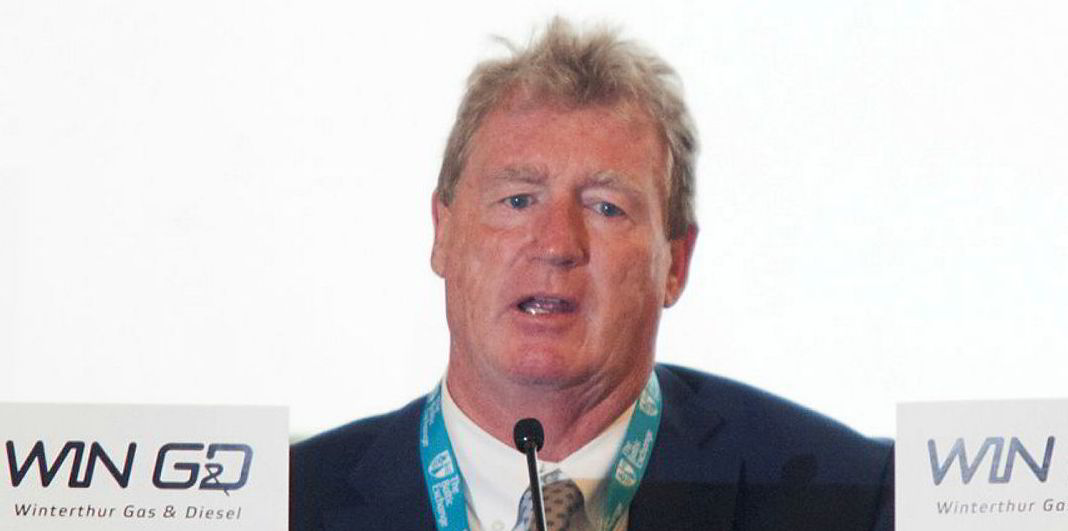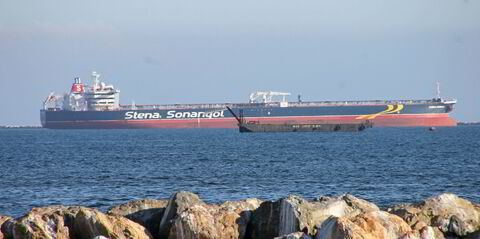When it comes to adapting to regulatory change in the maritime sector, veteran dry bulk executive Ed Coll has found that he who acts first rarely winds up having acted best.
Experience is informing his strategy to take a “wait-and-see” approach on the IMO's 2020 deadline for compliance with new sulphur fuel regulations on the fleet of New York-listed bulker operator Pangaea Logistics Solutions.
Some shipowners already have begun steps to install scrubbers on their vessels to allow continued use of high-sulphur fuel oil (HSFO), while others have opted to delay a decision.
During a recent interview at Pangaea’s offices in Newport, Rhode Island, Coll made it clear that he is in the latter group for his 18-unit owned fleet.
“A lot of public companies are declaring simply because people are asking and they need to have a policy,” Coll says.
“It’s not their money. It is our money, and we have a different attitude.”
While Pangaea is publicly listed on the Nasdaq exchange, the company is "closely held" and has a much smaller public shares float than many dry bulk peers.
“When you make no decision, that’s a decision in itself and so that’s our decision,” Coll says. “There are too many things that you can’t predict at this point. It’s a big capital investment. It depends on the age of ships and dry-docking cycles and a number of other factors.”
Once some of the variables clarify, solutions may be had at a lower cost for those who opt to wait, history suggests.

“We’ve done a lot of research, but on things like this we don’t like to be the first mover,” Coll says.
“Most of our ships have very low consumption so we’re not going to be bothered too much by it. We think most people are not going to [install scrubbers].”
Coll’s long experience in the sector dates back to his early days with Continental Grain Company. He joined Commodity Ocean Transport Corp (COTCO) in 1989 and became its president in 1993.
He founded Pangaea in 1996 and has been its chief executive from the outset. The company specialises in niche trades including ice-class transits in the Arctic through its subsidiary Nordic Bulk Carriers.
He recalls being at the helm at the millennium when the company had to decide what to do about the much-hyped “Y2K problem”, when the change in century supposedly was to wreak massive havoc with computer systems worldwide.
“We were asked ‘what’s your policy,’ and we told people we didn’t have a policy,” Coll says.
“The time came and the lights didn’t go off and we pretty much went on with business. So once again, this issue will be something for us to watch and be prudent about, but we’re not rushing into anything.”





